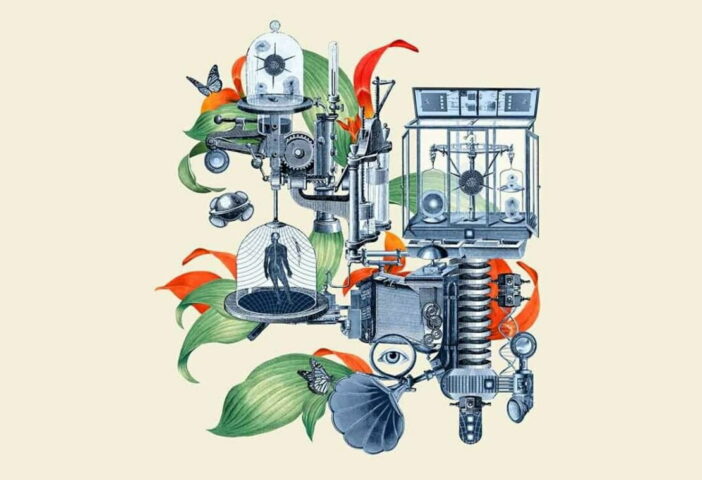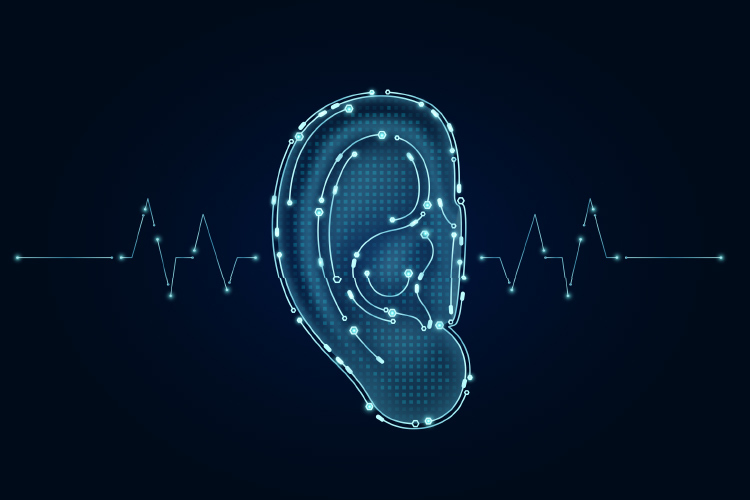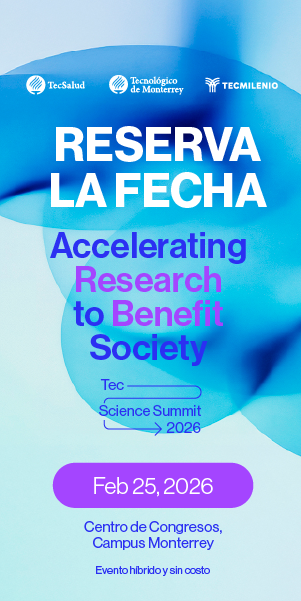Because of the integration of Artificial Intelligence (AI) in medicine, the era of Google your symptoms and assuming the worst diagnosis may be over. AI has the potential to simplify diagnostics while also empowering people.
Experts explored the role of AI and its potential to revolutionize healthcare and health systems in general during the panel “Transforming Healthcare with Artificial Intelligence,” during INCMty 2023.
Guillermo Torre, Rector of TecSalud and Vice President of Research at Tec de Monterrey moderated the panel, which included Rita Fuentes, a researcher at the Institute of Advanced Materials for Sustainable Manufacturing, Bill Weeks, Microsoft’s Director of AI for Health, Anthony Ortiz, Senior Researcher Scientist at Microsoft AI for Good Research Lab, and Morgan Guerra, CEO of Previta.
“In the short term, AI will bring about significant changes, affecting both doctors’ practices and providing more equitable access to healthcare,” Torre added.

Artificial Intelligence: Improved Diagnosis and Patient Empowerment
The expert panel discussed the possibilities of artificial intelligence in diagnostics, particularly when integrated inside accessible platforms.
These systems might provide users with exact information, allowing them to make educated decisions about their next steps in therapy.
The goal is to not only better inform patients, but also to provide vital data prior to treatment, enabling a larger perspective for making informed decisions immediately.
“When people search for their symptoms online, they may see advertisements or links that take them elsewhere. They could be guided toward the best course of action using AI,” Torre stated.
Furthermore, AI could one day be integrated into technology to help clinicians identify patients faster, shortening the time between consultation and treatment.
Ortiz emphasized that this technique is not limited to detecting illnesses like cancer or HIV; it can also address specific struggles like neonatal retinopathy.
Instead of requiring a physician to continuously watch a patient’s eyes over months, video and photographs captured on a mobile phone might be analyzed by an AI platform to give crucial treatment information.
Pharmacies doctors equipped with AI
The panelists highlighted that, in addition to improving diagnosis, Artificial Intelligence may have a positive influence on a country’s or region’s overall healthcare ecosystem.
In environments where spending on healthcare is low and there are insufficient medical professionals to serve the whole population, AI can be used in pharmacies or supermarkets to provide easily available specialized knowledge to doctors who may or may not be specialists.
“There are around 15,000 Dr. Simi pharmacies in Mexico. If we could provide them access to better AI technology services, we could improve healthcare provision and people’s health,” Guerra said.
However, the experts emphasized several concerns related to AI applications in the healthcare sector, such as fears over the collection and utilization of personal data and the reliability of the technology’s answers.
“One difficulty is that these algorithms are not always created by professionals. We need to engage with them, understand their needs, and get them involved in the design of these systems,” Fuentes said.
Weeks proposed comparing AI’s results to those of the world’s greatest specialists as one approach to illustrate AI’s advantages.
“AI in healthcare presents a significant opportunity to engage in various fields of study. It’s not only a health or medical issue; I feel there’s a huge transdisciplinary opportunity for the future,” Torre said.

















